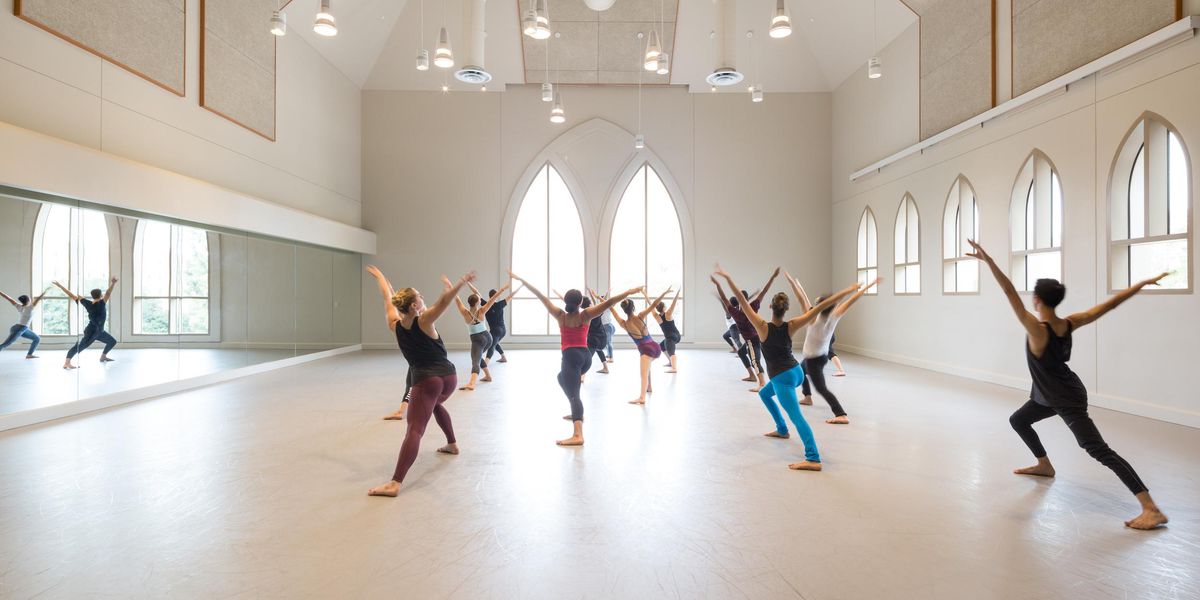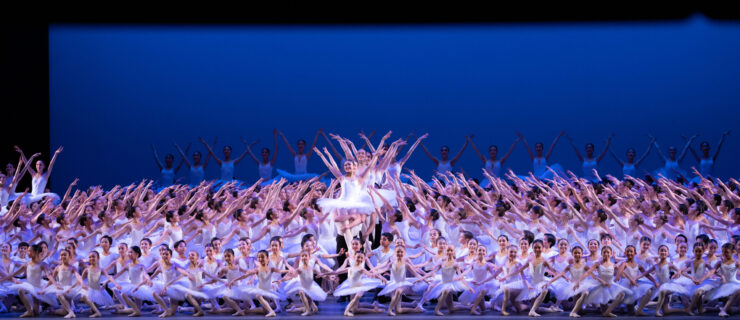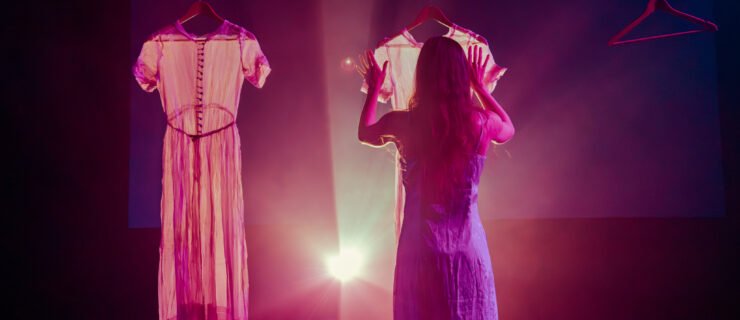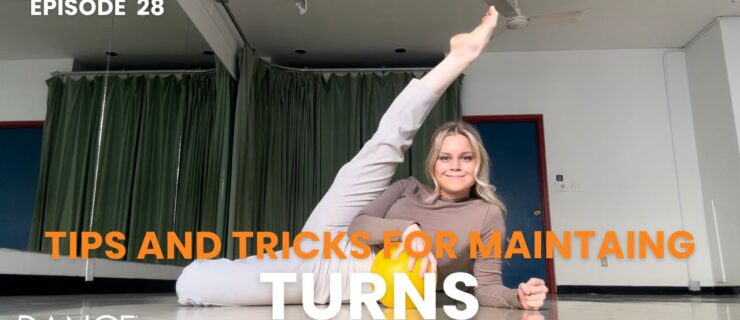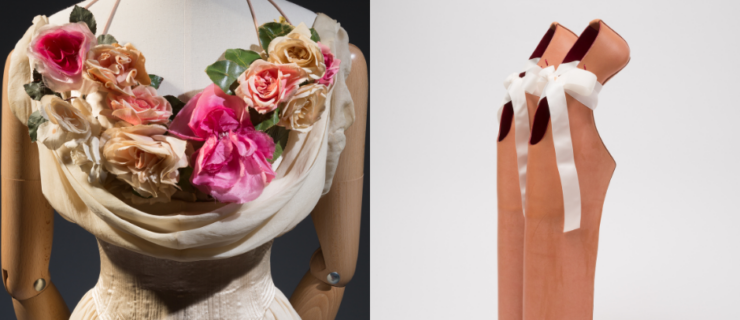Bound for Glory
The late Fernando Bujones’ account of the competition that made him a star.
Fernando Bujones was a spectacular bravura technician with superb partnering skills; his stage presence blended charm, courtesy, and an impish playfulness. Exceptionally clean and effortless in his approach, he influenced many of his peers, as well as students who saw in his ease a new kind of classicism. His breakthrough came at the Varna Competition in 1974, when he was the first American male to win the gold medal. He had been director of Orlando Ballet for five years at the time of his tragic death in November. In this excerpt from the autobiography he was working on, Bujones recalls the events leading up to his triumph.
Varna! A name that will always warm my heart. The memories of winning the gold medal at the 1974 International Ballet Competition in Varna, Bulgaria together with the excitement of the chaotic, draining but emotionally rewarding artistic event known as “the Olympics of Dance,” will eternally light my soul, as bright as the competition’s own burning torch.
It all started in 1970, when I was 15 and still a student at the School of American Ballet. One day I was glancing through Dance Magazine when I spotted a familiar face. It was Jorge Esquivel, who later became Alicia Alonso’s great partner, in the Don Quixote pas de deux at the Varna Ballet Competitions. It was the first time that I had seen or read anything about any of the boys with whom I had started my ballet training in Cuba.
When I went home that day, I told Zeida, who was my dance coach and like a sister to me, and my mom that I wanted to go to Varna. My competitive spirit received a cold shower! They explained to me that to compete at Varna, you needed a lot of money. Their small income was supplemented by the allowance the School of American Ballet gave my mom as part of my scholarship, which paid the rent for our apartment. My mother said that if we could ever put together the effort for me to go to Varna, we should wait until I could compete as a “senior.” My body would be stronger, I would be more mature, and I could dance a more challenging repertoire. I did not like to hear what mom and Zeida had to say, but I agreed to wait. We decided that in four more years, the year I turned 19, would be the right time to go.
My mother thought that in the coming years I would eventually forget about the competition. But I didn’t forget. I worked hard in every class, in every rehearsal, and all I could think of, dream of, was to someday go to Varna. It became my obsession.
In 1974 I turned 19. It was my second year with American Ballet Theatre. I had just been promoted to soloist although I was dancing mostly principal roles. Lucia Chase of ABT graciously sponsored my trip to Varna. I asked various ABT ballerinas to be my partner, but none of them wanted to go. After two weeks of frantic search, I realized that if I were to go, I would have to go alone.
I would have to prepare seven solos to be performed three different nights. Zeida and I came up with what we hoped would be a technically exciting repertoire of contrasting styles to show my versatility and depth. One month prior to leaving for Varna our work intensified. My day started at 10:00 a.m. with the company class. I would do the barre only and leave. Zeida was already waiting in another room and for the next hour, it was all Varna, five days a week. We would work on two variations per day. We rehearsed for stamina, repeating the variation twice without stopping, then three times until I thought I could no longer breathe and would die. But Zeida would not let me stop. “Hang on! Finish the variation!” Somehow she knew how to push me to the edge without injuring me, and her coaching motivated me to be better and better every day.
On the evening of July 5, 1974, my mother, Zeida, and I flew to London’s Heathrow airport on our way to Varna, Bulgaria. In London we changed to a second plane, destination Sofia, Bulgaria. On that flight an older gentleman sitting in front of me turned to me and said, “You look very familiar. What is your name?” “Fernando Bujones,” I answered. “Oh, you’re Bujones! I am Anton Dolin.” When he said his name my heart jumped. Here was one of ballet’s great premier danseurs, whose legendary partnership with Alicia Markova earned him a place in dance history. He was to be one of the judges representing England. Excited, I replied, “It is an honor to meet you.” Dolin continued. “So you are the young man that Clive Barnes has been ringing my ears about. He told me to look out for you, so you better be as good as he said.” I kept quiet but a slight grin crept up on my face.
The hotel to which we had been assigned in Varna was understaffed. Chaos. More than 50 dancers with family members, teachers, coaches, pianists, and friends, all speaking different languages, were pushing their way to the reception desk. There was a lot of shouting in the small lobby. Some people had already been there for an hour and were still waiting for rooms. It was a mad scene.
The competition had two categories: Juniors, from 15 to 20 years old; and Seniors, from 20 to 28 years old. Even though I was legally a Junior, I was challenging myself to compete in the Senior category. There were 115 contestants from 24 different countries. Their official numbers were determined by alphabetical order of the countries they represented. When I heard I was Number 78, my stomach cramped. “Oh darn! I have to go towards the end,” I thought. That meant I would not be competing until the third day of Stage One.
The first day of the competition had arrived. For the last two days it had been raining, and the occasional thunderstorms jeopardize the possibility to perform in the outdoor theater. But the opening ceremony goes on as scheduled. The members of the jury are introduced, including Yuri Grig-orovich, artistic director of the Bolshoi Ballet (president of the competition); Alicia Alonso from Cuba; Dolin from England, and many other illustrious names from the dance world. However due to the weather, the actual competition is postponed until tomorrow.
On the next day the weather continues to be nasty, and only at lunchtime does the rain stop. The outdoor stage is like a swamp. After an emergency meeting the organizers decide to move the competitions into the Sports Hall and remain there for the entire first stage of the competition to avoid any unfairness to those who will be performing on the first night. The decision is a great relief to me. The stage of the outdoor theater was raked, and the less I had to deal with it the better.
Stage One began around 8:30 p.m. and lasted over four hours. We saw dozens of dancers whose performing left much to be desired and who most likely would not make it into the second round. Most of them performed the pas de deux and variations from Don Quixote and Le Corsaire. This made Zeida and me feel good, for we realized that my variations from La Fille Mal Gardée and Swan Lake would be giving the judges some fresh material.
The day for me to compete has arrived. I am one dancer in a group of others that are warming up, but I am already as warm as I can be. I am bouncing around, hyper. I can feel the blood in my veins, part excitement, part anxious and ready to perform my first solo from La Fille Mal Gardée. Then I hear a voice through the microphones announce, “Fernando Bujones, candidate Number 78, United States of America.” I step out of the studio and onto the huge stage, and with the first musical chords of my variation I run across the entire stage to start from the right. I am now possessed, and something bigger than me is in control.
My variation starts with a double tour en l’air to fifth position into an arabesque en relevé. I feel weightless and I’m airborne. Towards the middle of the solo come the bigger jumps and a diagonal of revoltades, a rare bravura leap that so far had not been performed by any other dancer. The audience begins to respond enthusiastically and my nerves begin to relax. Their enthusiasm is exhilarating and I feel like I’m flying. The final step of my variation is a double tour to the knee. I nail it. I hold that final pose for a few seconds and then the roar of the audience makes me stand up like a spring.
With just 10 minutes to change I run backstage to the dressing rooms, taking my costume off as I run. A Bulgarian dresser holds my Prince Siegfried costume, a beautiful jacket that had belonged to the great premier danseur Igor Youskevitch, given to me by a friend for good luck. I change into the white tights for Swan Lake and the dresser slips the jacket on me. In the rush to get me ready, he pulls the zipper too hard and now the zipper is in his hand! At that moment my mother is walking towards me with a big smile, which quickly disappears when she sees me screaming for help. The dresser doesn’t speak a word of English, but my mom makes herself very clear. Within the next minute two more dressers are sewing shut the back of my jacket. They are still sewing when we hear through the loudspeakers: “Candidate Number 78, Fernando Bujones, United States of America.” I’m late!
By this time my mind is going a mile a minute, my nerves are on the edge, and all I am thinking is what if this jacket tears in the middle of a jump? I leap onto the stage a couple of beats after the music has started, trying to look as elegant as I can with a smile like nothing’s happened.
My nerves start calming down. I start delivering what other dancers would later describe as “technical wonders,” like the five slow pirouettes ending in perfect balance and holding it for one or two seconds still up on half toe. A strange and hectic scenario somehow favored me, and the Black Swan variation turned out to be one of the best variations I danced in the competition.
After the first round, Anton Dolin described it in his Varna Diary of Dance & Dancers’ September 1974 issue: “The real sensation was Fernando Bujones, born in the USA of Cuban parents. First variation from La Fille Mal Gardée. Second variation from Swan Lake. There is only one word—perfect. Bujones is everything Barnes told me he is. Extraordinary presence, intelligent and a simplicity of showmanship. One must hope and pray he will not be spoilt, for there is no doubt he is the public’s favorite.”
My heart went out to so many who had traveled from far away to get to Varna and now had been eliminated. In the meantime the weather had improved and the competition was moved back to the open-air amphitheater. All stage rehearsals had to be at night, since during the day the heat was extreme. My rehearsal was scheduled for 3 a.m.! I received a wake up call at 1:00 a.m., and there I was in the middle of the night putting on my Scottish kilt for my variation from La Sylphide. The next day I had an 11:00 a.m. rehearsal. I’d hardly slept the night before, and with this new morning rehearsal, I was feeling wiped out. Even worse was the unbearable heat onstage.
For this second round, Zeida and I had selected three solos. The first variation was a dazzling solo from La Sylphide, seldom seen in the Eastern bloc countries, consisting of quick footwork and leg beats, skills in which I was well trained. I was the only dancer performing Bournonville, and this gave me an advantage. My second solo was the athletically demanding variation from Le Corsaire, and last but not least was the “Rumba” from Robbins’ Fancy Free. My three solos couldn’t have been more different in choreography, style, and interpretation. If I danced them well, I would get extra points for those reasons. I passed into the third round.
By now less than 40 dancers remained from the original 115, and a real nail-biting finale was in the works. Zeida and I rehearsed more intensely than ever. We decided to add the coda to the Don Quixote variation to strengthen my last round. After the end of the variation, I would not leave, but stand in my place as if watching my (absent) ballerina in her variation, and then I would start the coda. This would give me the opportunity to perform combinations and steps that I had not shown before.
There had been heavy rain and the stage was still wet and slippery. To speed up the drying process the Bulgarians poured gasoline on the stage and then proceeded to set it on fire. This bizarre experiment helped to dry parts of the stage, but it also left some very slippery spots. More than seven dancers fell or slipped on stage that night, myself included. Fortunately the jury did not take points away from what was obviously a condition we all had to endure.
My first variation in the third round was the solo from La Bayadère, and it went very well. Then came my second and final variation, the Don Quixote variation and coda. Again, nobody had done that. I finished my variation to vigorous applause. Thank God for the Bulgarian audiences, who had strongly supported me throughout the competition. Then the music played the ballerina’s variation while I stood in place. When the music for my coda started, I was on fire and danced it all out. I finished my Varna competitions with lots of intensity and a full heart.
It was over! It had been a trial for the body and nerves. We stayed up very late with our friends, supporters, and fellow dancers. I slept until very late the next day. In the early afternoon my mother woke me up and said, “Congratulations! You won the bronze medal.” I was disappointed to say the least. “Bronze medal?” Zeida, who was also just starting to wake up, heard the same thing, and was so stunned she did not say a word. The lack of expression in our faces was too much for my mother, who then embraced me proudly and declared, “No! It’s the gold medal! You won the gold!”
Oh my God! Yes! I felt delirious. I wanted to scream but I had no energy. I looked at Mom and just kept smiling, for this victory was the realization of a long-held dream, an achievement to savor for the rest of our lives. We all started hugging each other and jumping up and down. We got dressed in seconds and ran down to the hotel lobby, where the winners were posted in notices everywhere. There it was, the confirmation. It was true! I was a gold medal winner.
I was the first American male dancer to win a gold medal at Varna. To my surprise, the judges also awarded me a special certificate for the highest technical achievement as a clear indication that my gold medal was indeed the top honor of the competition. At the official awards ceremony, the stage was beautifully lit and glowing with flowers and torches. All the judges were onstage, as well as the dancers who were to receive their medals. One by one our names were called. First, the junior categories, female and male bronze, silver and gold medals. Then the senior categories, again female and male. My name was the last one called. I walked towards the podium where the president of the competition, Yuri Grig-orovich, then director of Bolshoi Ballet, shook my hand and congratulated me. He awarded me the gold medal and handed me the highest technical achievement certificate. I returned to my seat still in disbelief, with a huge smile on my face. Then came a final touching moment. Having been the top winner in the Senior rank, I had the great honor to lower the competition’s flag, signaling the end of the 1974 Varna Ballet competitions.
Preparing to go back home, I held the gold medal in my hand before packing it. I felt a chill down my spine and my eyes watered. On the plane I had time to think, to look back and realize that this medal meant more than just winning the competition’s highest prize. This was about an achievement that proved to be the truest challenge of self-discipline and courage. I was looking forward to coming back to ABT to share with others the unforgettable experiences. And I wanted to dance. But most of all I was returning home feeling real good—one could say as good as gold. I was proud that as an American I had achieved something extraordinary for my country.
